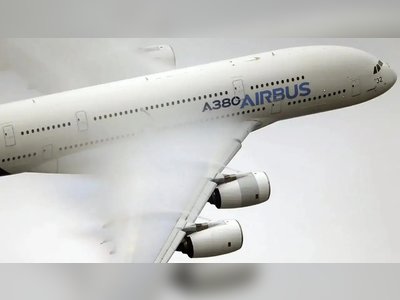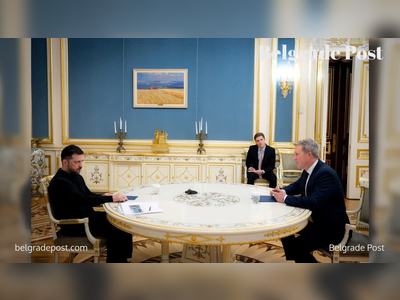Global Economy Faces Challenges Amid Rising Inflation and Geopolitical Tensions
Inflationary pressures and geopolitical instability present significant hurdles for the global economy as countries navigate recovery from the pandemic.
As nations worldwide emerge from the economic impacts of the COVID-19 pandemic, they are confronted with rising inflationary pressures, which have compounded recovery efforts.
Advanced economies, including the United States and those in the Eurozone, have reported inflation rates significantly above central bank targets, prompting policymakers to consider a range of monetary policy adjustments.
In the United States, the latest Consumer Price Index (CPI) data indicates inflation rates have climbed to their highest levels in over four decades.
The Federal Reserve has responded by adjusting interest rates multiple times in an effort to rein in price increases.
Economists contend that complications such as supply chain disruptions, increased labor costs, and heightened consumer demand have all fueled this inflationary environment.
Across the Atlantic, the European Central Bank (ECB) has also faced similar challenges, with inflation rates exceeding target levels amid rising energy prices and supply constraints.
The ECB has initiated discussions regarding potential rate hikes, seeking to stabilize prices without jeopardizing economic growth.
Emerging markets are not immune to these trends either.
Countries such as Turkey and Argentina have reported hyperinflation rates, resulting in significant socio-economic challenges.
These nations face intensified pressure to implement fiscal and monetary measures that could stabilize their economies in the face of mounting costs of living.
In addition to inflation, geopolitical tensions have further complicated the global economic landscape.
Ongoing conflicts, trade disputes, and political instability in various regions have contributed to market volatility and uncertainty.
Notably, tensions between major powers like the United States and China have implications for trade relations and global supply chains, influencing investor confidence across markets.
International organizations such as the International Monetary Fund (IMF) and the World Bank are closely monitoring these developments.
They have emphasized the importance of coordinated global efforts to address the interconnected challenges of inflation and geopolitical risk, recognizing that these issues require collaborative solutions to ensure sustainable growth.
As countries navigate these complexities, the path to economic recovery remains fraught with challenges.
The interplay of inflationary pressures and geopolitical dynamics will continue to shape the global economic environment for the foreseeable future.
Advanced economies, including the United States and those in the Eurozone, have reported inflation rates significantly above central bank targets, prompting policymakers to consider a range of monetary policy adjustments.
In the United States, the latest Consumer Price Index (CPI) data indicates inflation rates have climbed to their highest levels in over four decades.
The Federal Reserve has responded by adjusting interest rates multiple times in an effort to rein in price increases.
Economists contend that complications such as supply chain disruptions, increased labor costs, and heightened consumer demand have all fueled this inflationary environment.
Across the Atlantic, the European Central Bank (ECB) has also faced similar challenges, with inflation rates exceeding target levels amid rising energy prices and supply constraints.
The ECB has initiated discussions regarding potential rate hikes, seeking to stabilize prices without jeopardizing economic growth.
Emerging markets are not immune to these trends either.
Countries such as Turkey and Argentina have reported hyperinflation rates, resulting in significant socio-economic challenges.
These nations face intensified pressure to implement fiscal and monetary measures that could stabilize their economies in the face of mounting costs of living.
In addition to inflation, geopolitical tensions have further complicated the global economic landscape.
Ongoing conflicts, trade disputes, and political instability in various regions have contributed to market volatility and uncertainty.
Notably, tensions between major powers like the United States and China have implications for trade relations and global supply chains, influencing investor confidence across markets.
International organizations such as the International Monetary Fund (IMF) and the World Bank are closely monitoring these developments.
They have emphasized the importance of coordinated global efforts to address the interconnected challenges of inflation and geopolitical risk, recognizing that these issues require collaborative solutions to ensure sustainable growth.
As countries navigate these complexities, the path to economic recovery remains fraught with challenges.
The interplay of inflationary pressures and geopolitical dynamics will continue to shape the global economic environment for the foreseeable future.
AI Disclaimer: An advanced artificial intelligence (AI) system generated the content of this page on its own. This innovative technology conducts extensive research from a variety of reliable sources, performs rigorous fact-checking and verification, cleans up and balances biased or manipulated content, and presents a minimal factual summary that is just enough yet essential for you to function as an informed and educated citizen. Please keep in mind, however, that this system is an evolving technology, and as a result, the article may contain accidental inaccuracies or errors. We urge you to help us improve our site by reporting any inaccuracies you find using the "Contact Us" link at the bottom of this page. Your helpful feedback helps us improve our system and deliver more precise content. When you find an article of interest here, please look for the full and extensive coverage of this topic in traditional news sources, as they are written by professional journalists that we try to support, not replace. We appreciate your understanding and assistance.










